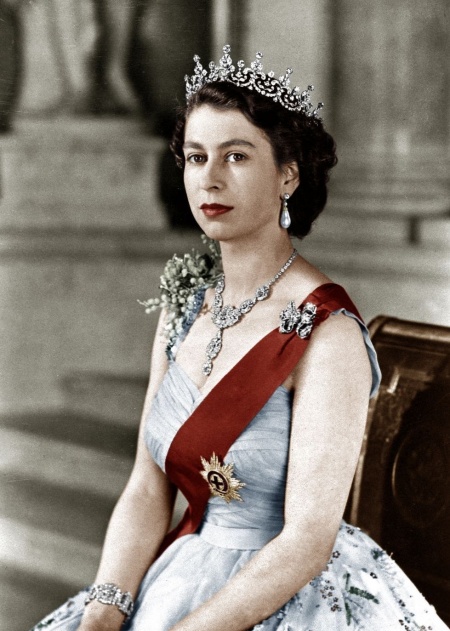
— Feature, Musings —09.09.2022 03:50 PM
My latest: the calm at the centre
There is nothing stable in the world. Uproar is your only music.
Uproar: so said the English poet John Keats in a letter to his brothers, in January 1818. George III was the king in that year, and the world was beset by slavery, cholera, and wars in Europe and the West. It was a time of great instability and turmoil and chaos.
In that uncertain time, George III ruled for just shy of sixty years. Only Queens Victoria and Elizabeth II would go on to be on the throne that long – Victoria, 63 years, Elizabeth, 70 years.
Like this writer’s favourite poet, Theodore Roethke, Keats was a great observer of the natural world. From that, he acquired the view that life, in the main, was mostly about hardship and suffering. People, Keats wrote, were perpetually “straining at particles of light in the midst of a great darkness.” Keats, perhaps the greatest English poet, knew about that darkness: he died horribly, from tuberculosis, at the age of 25.
What he wrote to his brothers George and Thomas was as true now as it was then. In 1818, as in 2022, uproar is ubiquitous. It cannot be missed.
As in 1818, war is again raging. There is Russia’s vicious and unholy war against Ukraine, near the centre of Europe. After seven months, at least 40,000 Ukrainians have been killed or wounded; as many as 43,000 Russian soldiers have been killed, too.
In Africa, in places like Sudan, Somalia, Sudan, Ethiopia, Nigeria and the “Democratic Republic” of Congo, millions have been displaced by war and drought and Ebola and famine, and millions more are starving. Elsewhere, in places like Myanmar, there is genocide, with tens of thousands murdered and raped.
Globally, Covid-19 persists, despite the serial fantasies of politicians bent on re-election, and fantasists bent on self-destruction. To date, the virus has killed at least seven million people around the planet – but the real figure is perhaps twice that, because governments lack the means or the will to tell the truth about the full extent of the death toll.
In Canada, Covid has killed close to 50,000 of us – but the real figure is known to be much higher. And that lesser figure, alone, is already thousands more Canadians than those who were killed in World War II.
Such misery and death – such uproar, as John Keats called it – has always been a constant for humankind. The uproar upends lives, and leaves us feeling like there is no respite, no relief from it all.
Except, except: her. She was.
She was born Elizabeth Alexandra Mary Windsor. More formally, she would become known as “Elizabeth II, by the Grace of God, of the United Kingdom of Great Britain and Northern Ireland and of her other realms and territories Queen, Head of the Commonwealth, Defender of the Faith.”
It was not that cumbersome title, of course, for which she became known. She became known – and admired, and loved – because she somehow provided an antidote to Keats’ uproar. She was stability in an era of instability. She was certainty when too much remains uncertain. She was steadiness when the world was anything but.
Elizabeth was not elected to her role, which (understandably) rankled many. She was born to it. But that, in an odd way, placed her above the grubbiness of re-election and phoney political promises. She was born to be rich and powerful, true. And she could have revelled in that, and been disinterested in the everyday concerns of everyday people – as some of her children have been.
But she clearly regarded her role as one of duty and service, and she provided both for seven decades, without complaint. Supporting charity, promoting good causes, urging on democracy and decency. Most of all, however, she was the antidote to the perpetual uproar.
A few years ago, Ontario Premier Dalton McGuinty invited this writer and others to meet her, at the opening of a cavernous, metal-clad film studio in Toronto’s East end. The heat was Hellish, that day, and all of us – dressed in our finest outfits – were bathed in sweat. It was almost unbearable.
Her Majesty was tiny, I recall. She wore a hat and held her purse close to her, and there was a faint smile on her face, which was a lovely face. As she moved away from me and my friend Bob Richardson, I whispered to him that she appeared completely unaffected by the heat.
“She is the calm,” I said to Bob, “at the centre of every storm.”
And she was.
And we will miss her for it.

One of the nicest tributes to HM Queen Elizabeth II I have have read. Thank-you, Sir…..
Warren,
Damned fine piece of writing. What a fitting tribute.
Exactly.
Even when the media was emphasizing the seriousness of her health, I automatically started thinking “she’ll pull through and they will announce that any moment…. it’s the Queen and she always pulls through”. That thought was entirely illogical for a 96 year old but it was there. I still have trouble getting my head around the fact that she is gone.